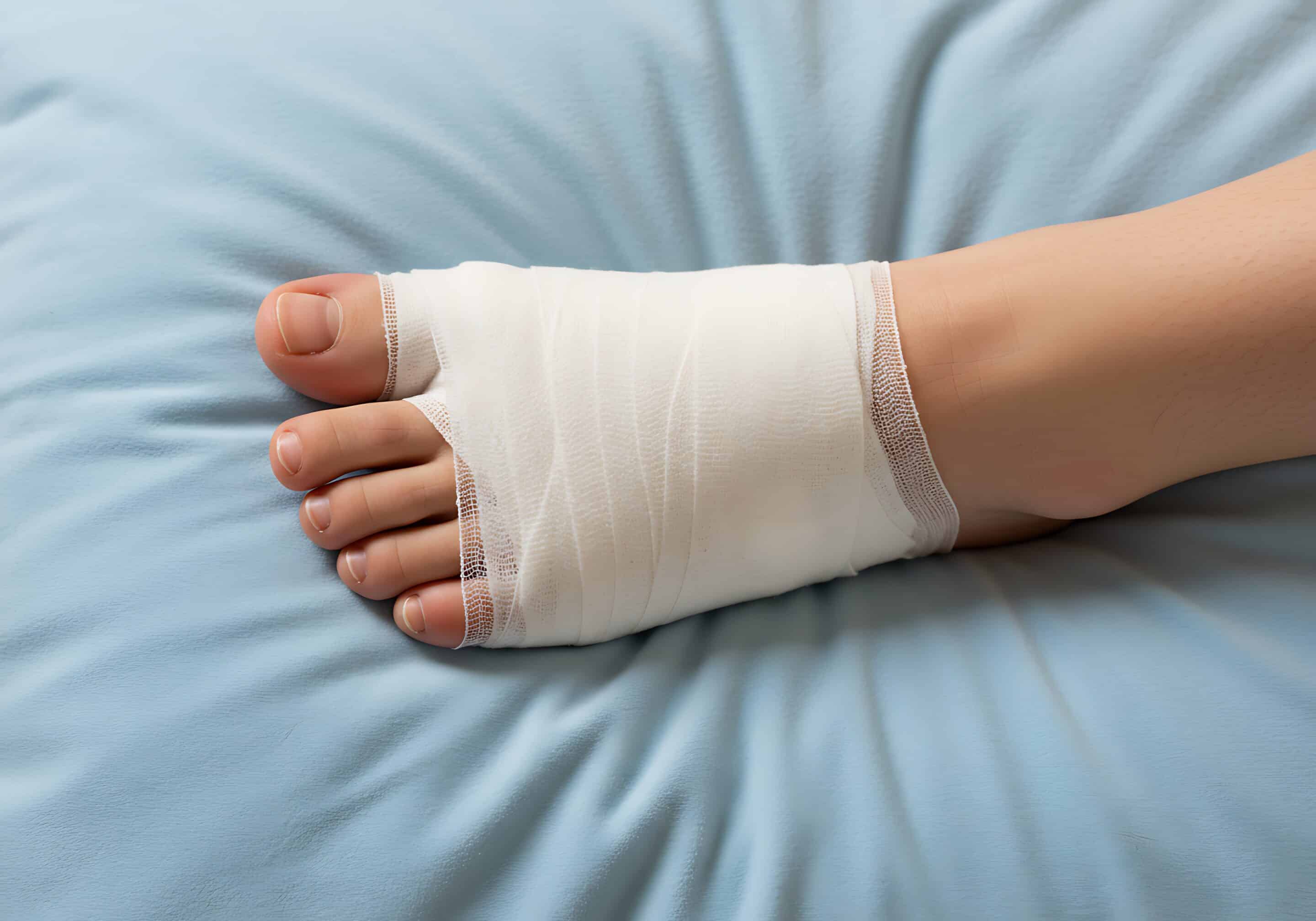Diabetic Wound Care
Why Diabetic Wound Care is Critical
Living with diabetes means paying extra attention to your foot health. Even small injuries like cuts or blisters can rapidly develop into serious complications if they aren’t promptly noticed or properly cared for. Without proper treatment, these wounds can escalate into infections, ulcers, and, in severe cases, lead to amputation.
For individuals in Colorado Springs managing diabetes, proactive foot care is essential. At McVay Foot & Ankle, we provide comprehensive diabetic wound care using advanced treatment protocols designed to promote faster healing and reduce the risk of serious complications. If you or someone you care about is experiencing a stubborn or infected foot wound, don’t wait—call us at (719) 266-5000 for prompt treatment.
Why Diabetes Increases the Risk of Foot Wounds
People with diabetes are more vulnerable to foot wounds due to several underlying factors. One of the most common is peripheral neuropathy, a form of nerve damage that diminishes sensation in the feet. As a result, you may not feel small injuries when they happen, allowing them to worsen before they’re detected.
Additionally, diabetes often leads to poor circulation, or peripheral artery disease (PAD), which restricts blood flow to the lower limbs. This slows the healing process and limits the amount of oxygen and nutrients delivered to the tissue, making the area more susceptible to infection.
Compounding the problem is a weakened immune system. Diabetes can weaken the immune system, leaving the body less equipped to combat bacteria and increasing the risk of infection from even minor injuries.

Common Diabetic Foot Wounds We Treat
At McVay Foot & Ankle, we commonly treat diabetic foot ulcers—open sores that develop from pressure, friction, or unnoticed trauma. These ulcers usually form on high-pressure areas like the ball of the foot, heel, or toes and can deteriorate quickly without medical intervention.
We also manage infected cuts and blisters, which may begin as minor skin disruptions but can lead to deep infections if not properly addressed. Warning signs include swelling, redness, warmth, or the presence of pus.
In more advanced cases, we treat gangrene, which is the death of tissue due to a severe lack of blood flow. This condition often results in blackened or discolored skin and may require amputation if not treated immediately.
Our Approach to Diabetic Wound Care
Our treatment begins with thorough wound cleaning and debridement—a process that removes dead tissue, bacteria, and debris to prevent infection and encourage the growth of healthy tissue.
To promote healing and prevent further damage, we focus on offloading the affected area. This includes the use of custom orthotic inserts and assistive devices like crutches or wheelchairs to reduce pressure on the wound.
If an infection is present, we prescribe appropriate oral or topical antibiotics and apply antimicrobial dressings to prevent bacterial growth. For more advanced wounds, we offer cutting-edge options such as MLS laser therapy to reduce inflammation and speed tissue repair, as well as specialized dressings and skin grafts for deep or chronic ulcers.
Preventing Diabetic Foot Wounds
Prevention plays a vital role in diabetic foot care. We recommend that individuals with diabetes inspect their feet daily for any signs of injury, such as cuts, blisters, redness, or swelling. If it’s difficult to see the soles of your feet, try using a mirror or ask someone you trust to assist.
Wearing proper footwear is also key. Diabetic-friendly shoes are designed to protect your feet by minimizing pressure points and preventing friction-related injuries. Going barefoot—even at home—is discouraged, as it increases your risk of stepping on something that could cause harm without you noticing.
Maintaining consistent blood sugar levels is equally important. Stable glucose levels improve circulation and immune response, both of which are necessary for wound healing. A balanced diet and regular physical activity can make a significant difference in your overall foot health.
When to See Our Podiatrists
If you notice a foot wound that isn’t healing within a few days, or if you observe swelling, redness, discharge, or an unpleasant odor, it’s time to seek professional care. Pain, dark discoloration, or signs of gangrene also require immediate attention.
At McVay Foot & Ankle, we offer expert wound care designed to minimize complications and get you on the path to recovery. From early-stage ulcers to more advanced infections, we’re here to help you heal safely and effectively. Call (719) 266-5000 or schedule your appointment online today.
Note: Please do not use the contact form to send extensive or Protected Health Information (PHI). Please phone our office instead.
© McVay Foot & Ankle. All Rights Reserved
Web Design by CP Solutions
Marketed by VMD Services
Privacy Policy | Terms & Conditions
